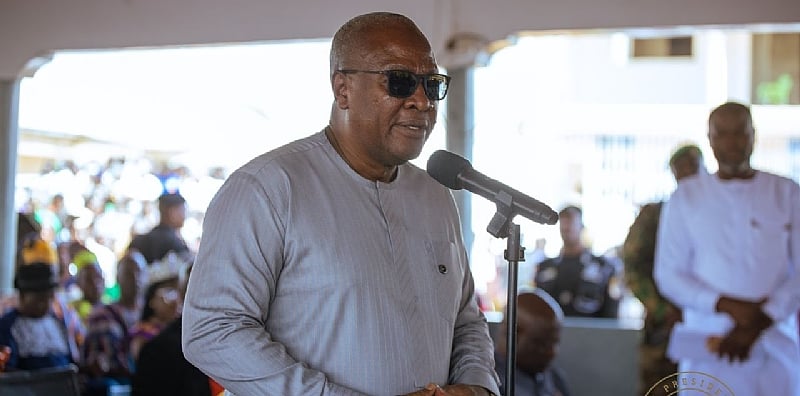President John Dramani Mahama’s first week in office has been marked by a decisive focus on addressing the escalating conflict in Bawku, a town in the Upper East Region of Ghana. His visit to the Bawku Naba, the Overlord of the Kusaug Traditional Area, underscored his commitment to engaging with all stakeholders and finding a lasting solution to the decades-long chieftaincy dispute. The President recognized the protracted nature of the conflict and the toll it has taken on the community, acknowledging the fear and uncertainty that have plagued the region for the past three years. He vowed to prioritize the restoration of peace and security, enabling residents to resume their lives without the constant threat of violence.
Central to the President’s strategy is the swift appointment of key security personnel. He announced his intention to nominate individuals to critical positions within the week, including the Minister of Defence, Minister of the Interior, National Security Advisor, National Security Coordinator, and the Director of the National Intelligence Bureau. These appointments signal a proactive approach to tackling the security challenges facing the nation, with a particular emphasis on the Bawku conflict. The President intends to mandate these newly appointed officials to prioritize the Bawku situation and develop effective strategies to restore peace and stability. This swift action reflects the urgency with which President Mahama views the situation and his commitment to addressing the root causes of the conflict.
President Mahama’s visit to Bawku was not merely symbolic. It represented a tangible commitment to engaging directly with the affected communities. He emphasized his campaign promise to prioritize peace in Bawku and reiterated his determination to fulfill that pledge. Recalling a period of relative tranquility during his previous presidency, he lamented the resurgence of violence and its devastating impact on the community. The President’s personal connection to the region and his understanding of the historical context of the conflict position him to effectively mediate between the warring factions. His presence in Bawku signifies a renewed effort to bridge divides and foster reconciliation.
The President’s commitment to peace in Bawku extends beyond mere rhetoric. He acknowledged the deep-seated issues fueling the conflict and appealed for patience as the government works towards a sustainable resolution. He recognized the need for a multi-faceted approach, involving not only security measures but also addressing the underlying socio-economic factors contributing to the unrest. His assurance that the government will “deal with these situations” suggests a comprehensive strategy that encompasses both short-term interventions to quell the immediate violence and long-term solutions to address the root causes of the conflict.
The impact of the Bawku conflict extends beyond the immediate region. President Mahama emphasized the importance of ensuring the safety and security of all citizens, highlighting the right to travel freely without fear of harassment or violence. This broader perspective underscores the interconnectedness of peace and security across the nation and reinforces the government’s commitment to upholding the fundamental rights of all Ghanaians. The President’s visit to Bawku serves as a powerful message to the nation, demonstrating his resolve to address the challenges facing the country and ensure the safety and well-being of its citizens.
The President’s itinerary also included a visit to the Nayiri, the Overlord of Mamprugu, in Nalerigu, North East Region, demonstrating a comprehensive approach to addressing regional conflicts and promoting dialogue between traditional leaders. Accompanied by key members of his administration, including the Acting Spokesperson and the Member of Parliament for Bawku Central Constituency, President Mahama demonstrated a united front in tackling the crisis. The alarming statistic of at least 40 lives lost since the conflict re-emerged in October 2024 further underscores the urgency of the situation and the need for decisive action. The President’s proactive engagement signifies a commitment to fostering peace and security, not only in Bawku but across the nation. His actions in the first week of his presidency set the tone for a renewed focus on conflict resolution and building a more secure and prosperous future for Ghana.














